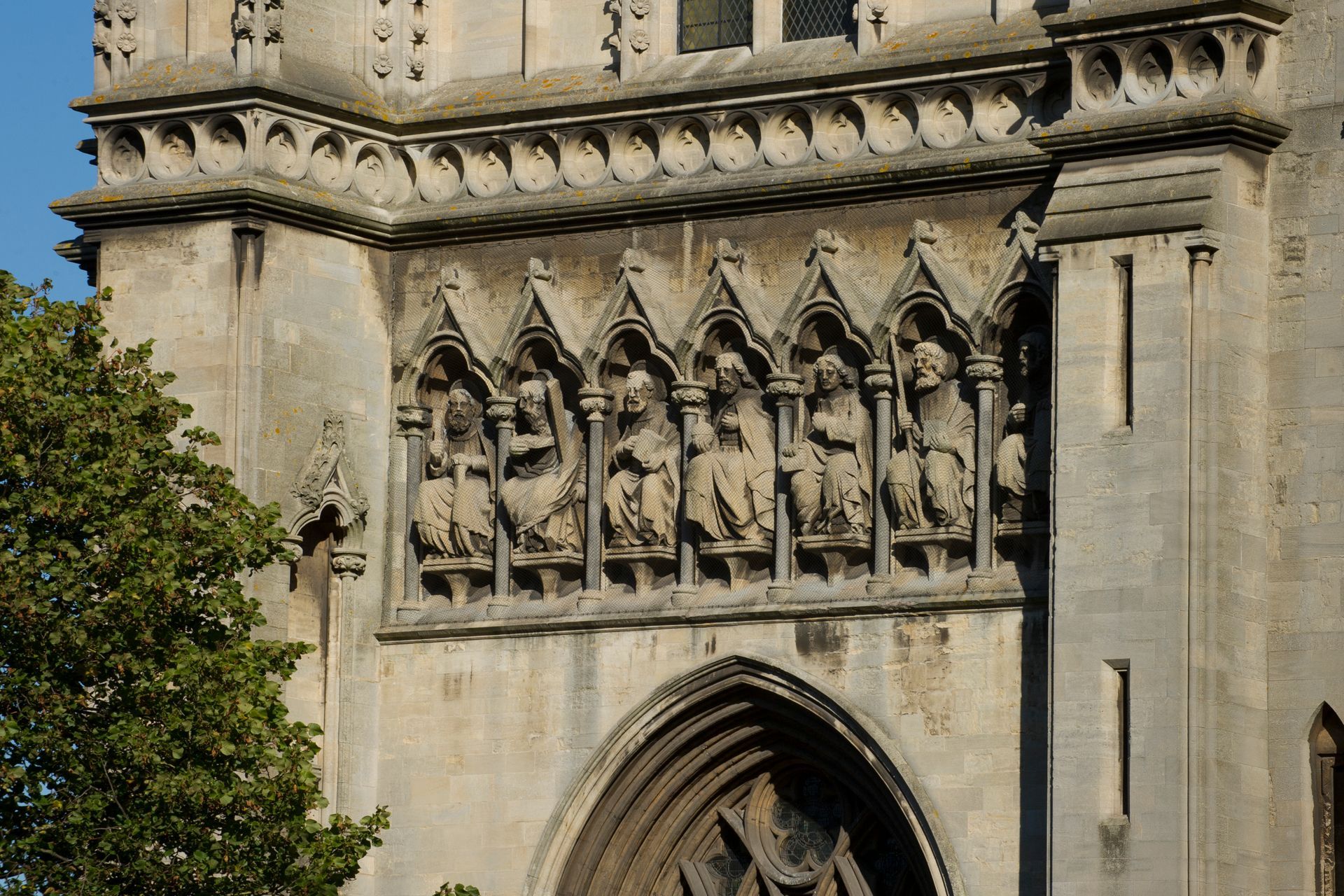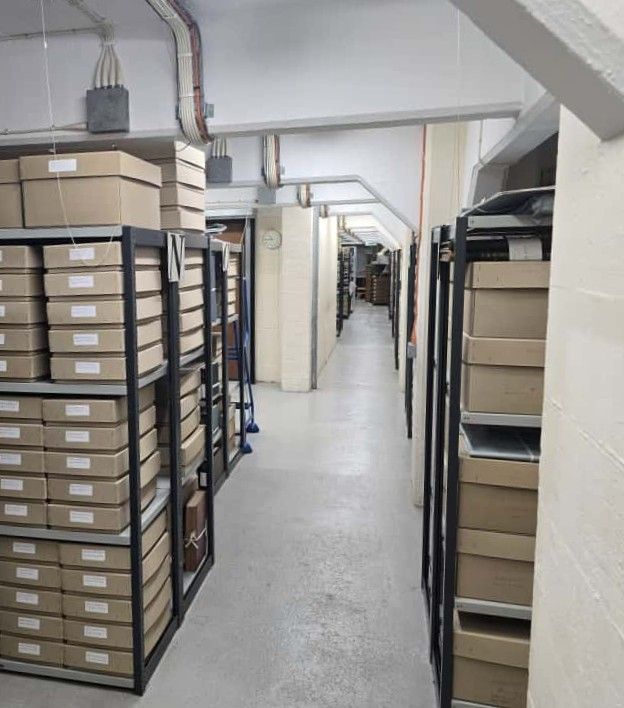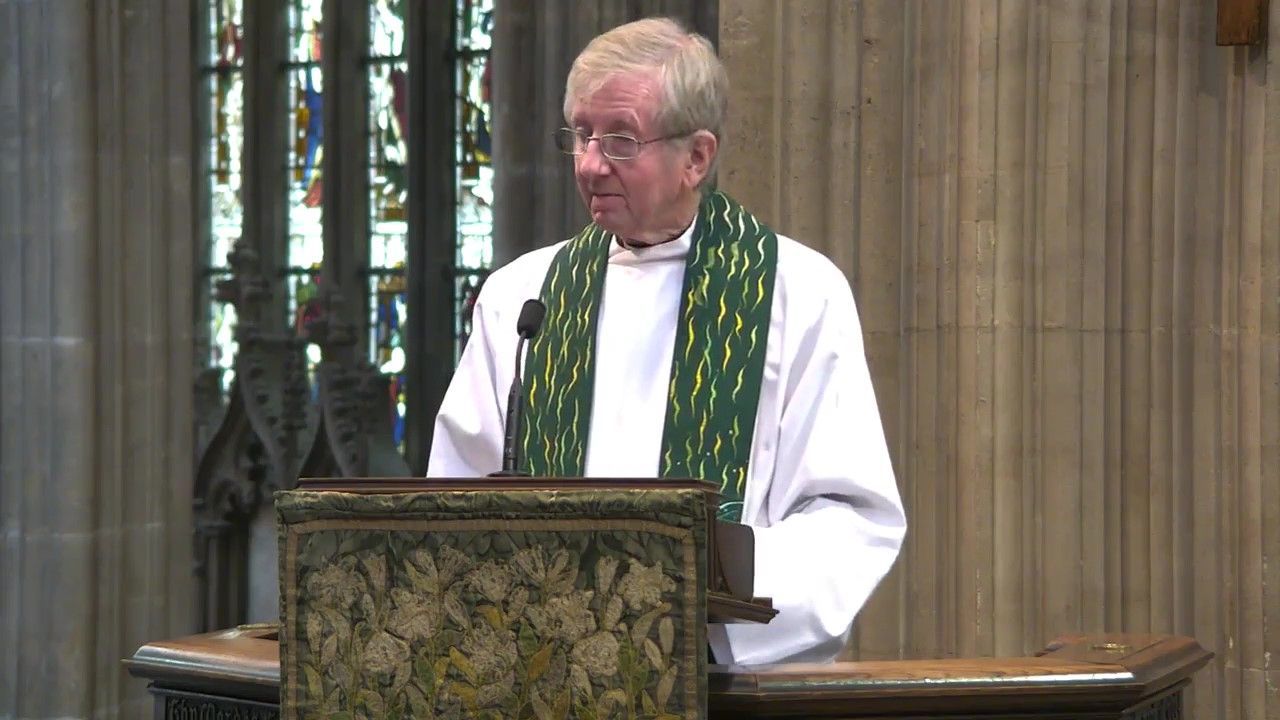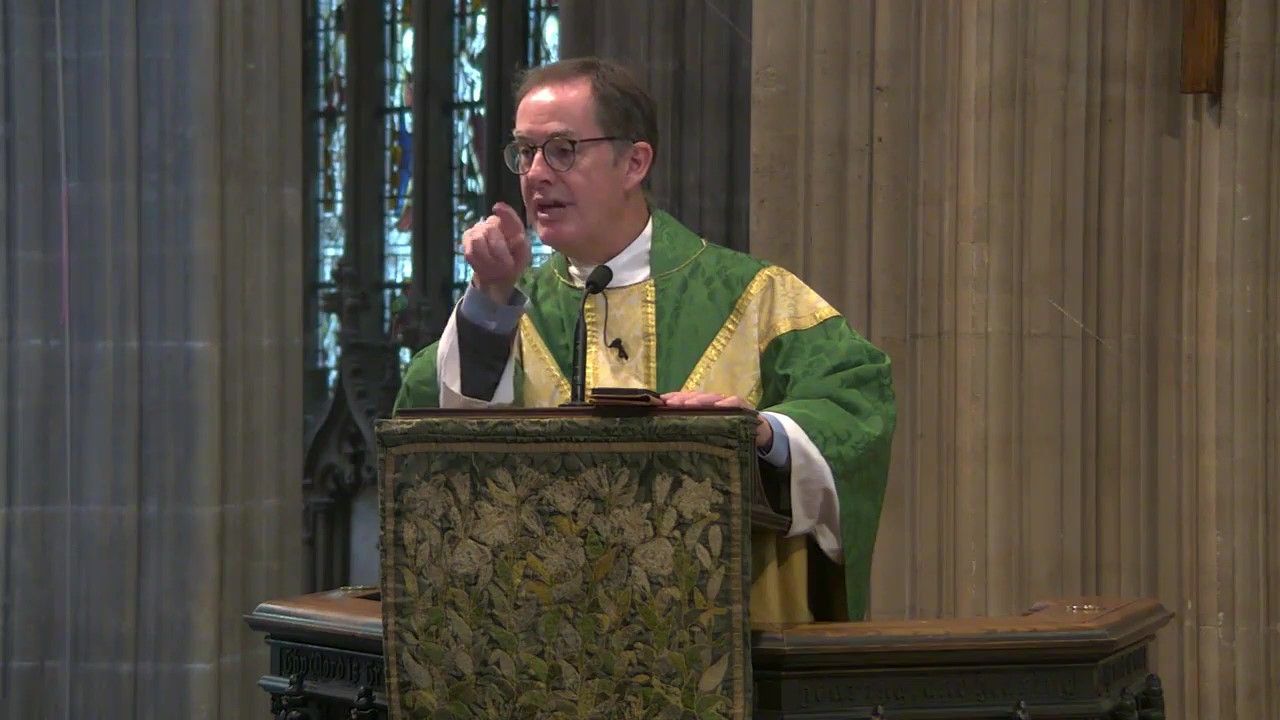Where do you belong?
I was talking with a man the other day who told me that he grew up in a Christian household but didn’t follow any religion anymore. Along with many other people he is happy to identify as spiritual but not religious. For him, in too many church buildings, he doesn’t see people like him represented and so doesn’t feel that people like him are wanted and welcome.
You may not be surprised to learn that my companion was black and we were standing under the new windows in the north transept. For him, the significance of seeing faces that are more like his in the windows of St Mary Redcliffe cannot be underestimated. For him, seeing faces like his gives him an opportunity to belong not just in this building but within the Christian faith of his youth.
In our gospel reading this Sunday, Jesus is praying with his disciples. He offers these words to his heavenly father about them: “They do not belong to the world, just as I do not belong to the world … As you have sent me into the world, so I have sent them into the world.”
There is clearly something about “belonging to” and “being in” that are similar but not the same and important to Jesus. My companion is in the world but doesn’t feel like he belongs to this part of the world. Jesus is telling us that we are sent into the world but do not belong to it. So are we saying that my companion is living out the vision that Jesus puts before us?
Absolutely not. There is a fundamental difference between his experience of the world and what Jesus demands of us … and the difference is ‘who chooses’?
We are called to be in the world and to choose to live in a way that does not collude with the shortcomings, failures and exclusions that are self-evident in daily life. My companion did not have that choice. The world to which he was sent chose signs and symbols, words and laws, that defined him as not belonging.
Here at St Mary Redcliffe we have a strapline of ‘singing the song of faith and justice’. We intentionally set out to be inclusive and to celebrate diversity. To that end we have laid aside things which collude with a narrative of power-relationships or that look or feel a little colonial. This is part of our understanding of being in the world, the world to which we have been sent, but not belonging to the world.
The world, even our little part of it, is not as Christ would have it: whilst any fragment of inequality and injustice remains, the world is out of kilter and the heart of Christ is broken.
Dan Tyndall
10 may 2024






